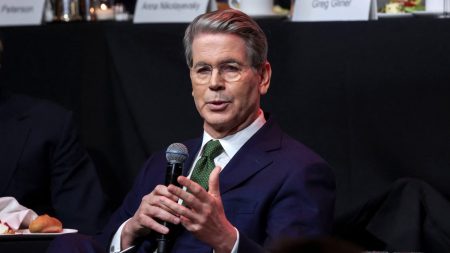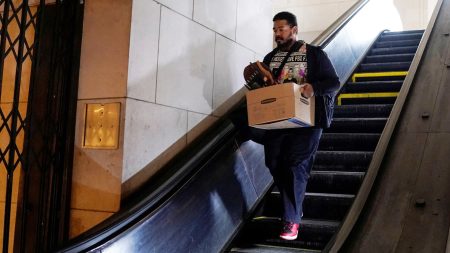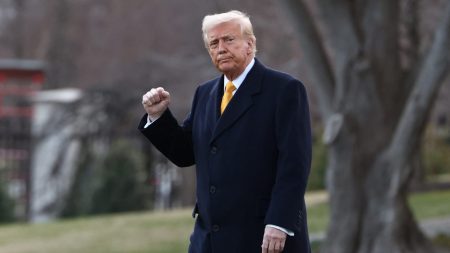Elon Musk and Donald Trump Explore Tax Refund Checks for Americans
In a unique collaboration between the worlds of politics and business, U.S. President Donald Trump and Elon Musk, CEO of Tesla and SpaceX, are considering an innovative proposal to send tax refund checks to American households. The idea, suggested by James Fishback, CEO of the Azoria investment firm, involves using savings generated by the Department of Government Efficiency (DOGE), an advisory group led by Musk. The proposal aims to distribute a portion of these savings directly to taxpayers, potentially offering thousands of dollars per household. This move could mark a significant shift in how the federal government interacts with its citizens, blending private-sector efficiency with public policy.
Musk’s Mission to Cut Federal Spending
Elon Musk, known for his ambitious goals in both the private and public sectors, has set his sights on reducing federal spending. As the head of DOGE, Musk has announced plans to cut $2 trillion from the annual federal budget, which currently stands at $6.75 trillion. If successful, this reduction could free up substantial funds for redistribution. Fishback’s proposal, which Musk has agreed to discuss with President Trump, suggests taking 20% of these savings—approximately $400 billion—and issuing tax refund checks to U.S. households. This would translate to around $5,000 per household, a significant sum for many American families.
The Concept of a "DOGE Dividend"
James Fishback’s idea of a "DOGE Dividend" is rooted in a principle often seen in the private sector: when a company fails to deliver on its promises, it typically refunds its customers. Fishback argues that the federal government should adopt a similar approach. By failing to manage its budget efficiently, the government has effectively promised more than it can deliver. The savings uncovered by DOGE, Fishback claims, represent an opportunity for the government to "refund" taxpayers for its shortcomings. This idea is both bold and symbolic, as it would treat taxpayers as customers entitled to a refund for inadequate service.
Historical Precedent: Stimulus Checks During COVID-19
The idea of issuing tax refund checks is not entirely new. During the COVID-19 pandemic in 2020, the U.S. government mailed stimulus checks to millions of taxpayers to help alleviate the economic impact of the crisis. Notably, these checks bore President Trump’s signature, a departure from the usual practice of anonymized IRS payments. This precedent suggests that direct financial support to citizens is both feasible and politically viable. Fishback’s proposal builds on this concept, framing the payments as a form of accountability rather than emergency relief.
DOGE’s Controversial Track Record
Despite the optimism surrounding DOGE’s savings goals, the group has faced significant scrutiny. While DOGE claims to have saved $55 billion through its cost-cutting initiatives, independent reports suggest the actual figure may be far lower. For instance, Bloomberg recently reported that DOGE’s website only accounts for $16.6 billion of the claimed $55 billion. Furthermore, the New York Times revealed an error in DOGE’s calculations, where an $8 billion saving was mistakenly cited when the actual figure was just $8 million. These discrepancies have raised questions about the credibility of DOGE’s claims and whether the group’s efforts are as impactful as advertised.
Legal Challenges and Moving Forward
DOGE’s efforts have also faced legal challenges, with several court cases questioning the group’s authority and methods. However, on Tuesday, a federal judge ruled in favor of DOGE, denying a request to halt its activities while litigation is ongoing. This decision allows Musk and his team to continue accessing federal agencies’ computer systems and directing government worker firings, a key part of their cost-cutting strategy. Despite the legal victory, the group will need to address concerns about transparency and accuracy to maintain public trust.
The Bigger Picture: A New Era of Government-Taxpayer Relations
The proposal to issue tax refund checks represents a fascinating intersection of politics, business, and taxpayer advocacy. While the idea is still in its infancy, it reflects a growing belief that governments should be more accountable to their citizens. Musk’s involvement adds a layer of unpredictability, as his track record of innovation often comes with both groundbreaking successes and high-profile missteps. Whether this initiative moves forward—and how it is received by the public—will depend on the accuracy of DOGE’s savings claims, the political will of the Trump administration, and the willingness of lawmakers to embrace such a bold policy. For now, it remains a compelling example of how private-sector thinking is influencing public policy in unprecedented ways.









